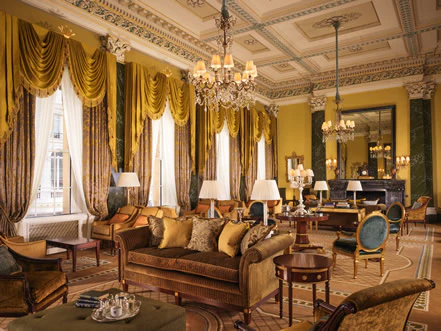Gentlemen’s clubs, a staple of many societies, have a rich history and continue to intrigue people around the world. These establishments offer more than just a gathering place for men; they serve as hubs of networking, camaraderie, and shared interests. In this article, we delve into the fascinating world of Gentlemen’s Club tracing their origins, examining their evolution, and exploring their place in modern society.
Historical Context of Gentlemen’s Clubs
Gentlemen’s clubs find their roots in 18th century England. Emerging during the Enlightenment era, these establishments were founded as exclusive venues for men of similar social standing to convene and discuss matters of shared interest. The clubs provided a space for intellectual debates, discussions on politics, and the exchange of ideas. These gatherings fostered connections that often had far-reaching effects on societal developments.
Notable Gentlemen’s Clubs Worldwide
The concept of gentlemen’s clubs spread beyond England to various corners of the globe. Traditional London clubs like White’s, Brooks’s, and The Reform Club became synonymous with prestige and exclusivity. Internationally, the concept took on different forms, adapting to local cultures and customs. For instance, American “private clubs” embraced a similar ethos, while also introducing their own unique elements.
The Modern Gentlemen’s Club
As times have changed, so too have gentlemen’s clubs evolved. The exclusivity that once defined them has been challenged by calls for inclusivity and diversity. Modern gentlemen’s clubs have diversified their offerings to appeal to a wider audience, welcoming individuals from various backgrounds and professions. Activities now encompass not only intellectual discussions but also entertainment, fitness facilities, and fine dining.
The Appeal of Gentlemen’s Clubs
The allure of gentlemen’s clubs lies in their ability to provide unparalleled networking opportunities. Business deals are struck, connections are forged, and careers are advanced within these exclusive walls. Additionally, the luxurious amenities and personalized services offered contribute to their appeal. Members can enjoy top-notch facilities, gourmet dining experiences, and access to events that are otherwise hard to come by.
Criticisms and Controversies
While gentlemen’s clubs maintain their charm for many, they are not without controversy. The gender-exclusive nature of most traditional clubs has drawn criticism for perpetuating exclusivity and excluding women from important networks. In response, some clubs have begun to adapt, opening their doors to women and LGBTQ+ individuals. These changes reflect the ongoing dialogue about inclusivity and equality in modern society.
The Future of Gentlemen’s Clubs
As societal norms continue to evolve, gentlemen’s clubs must also adapt to remain relevant. The rise of digital communication and the changing dynamics of work and socialization present new challenges and opportunities. Some clubs are embracing technology to facilitate networking and engagement among members, while others are focusing on preserving the traditions that give these clubs their unique character.
The Enduring Charm of Tradition
In a world of rapid change, gentlemen’s clubs offer a sense of stability and tradition. The timeless aspects of these clubs, such as their emphasis on camaraderie and shared interests, provide a welcome counterbalance to the fast-paced nature of modern life. Striking the right balance between upholding traditions and embracing progress is key to ensuring that gentlemen’s clubs remain relevant and appealing.
Conclusion
Gentlemen’s clubs have a storied history that dates back centuries. From their origins as exclusive meeting places for the elite to their current status as diverse hubs of networking and camaraderie, these establishments continue to capture the imagination of many. As they navigate the challenges of the modern era, gentlemen’s clubs have an opportunity to evolve while preserving the timeless values that have made them enduring symbols of refinement and camaraderie.













